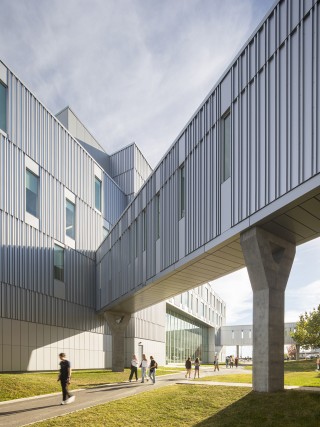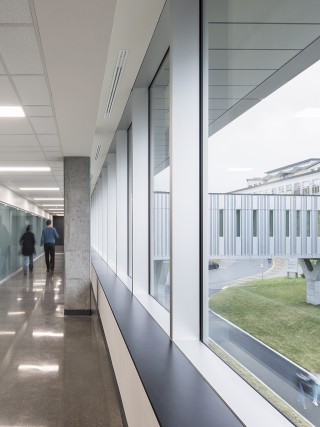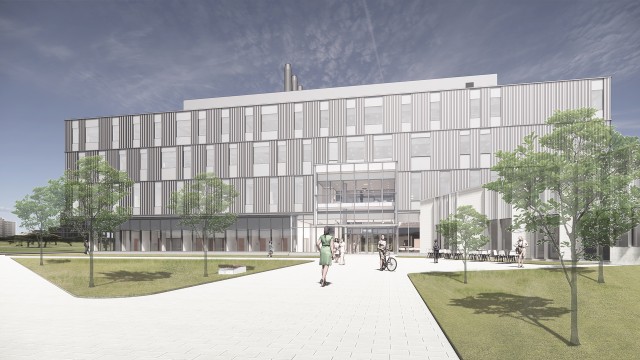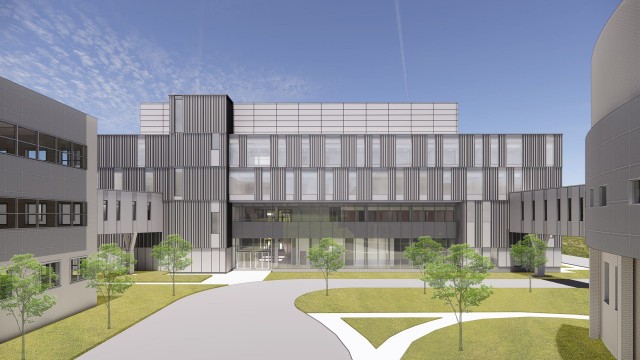Pavillon de santé de précision et de recherche translationnelle of the Université de Sherbrooke
Built at the heart of the Université de Sherbrooke Health Campus in Fleurimont, the Precision Health and Translational Research Pavilion (Pavillon de santé de précision et de recherche translationnelle - PSPRT) facilitates the development of precision health and translational research—that is, from fundamental discovery to changes in clinical practices and direct patient care with the help of digital health data—in concert with existing infrastructures.
Bringing research teams in health informatics, artificial intelligence, data science, clinical practice improvement, and healthcare service organization together under one roof, the new pavilion offers a bright working environment conducive to interdisciplinary collaboration, knowledge sharing, and innovation in order to foster the emergence of new ideas in healthcare. The PSPRT is home to the PREVALIS platform, "the leading platform for research, development, analysis, and liaison in health informatics."
Location
Fleurimont site of the Centre hospitalier universitaire de Sherbrooke
Partners
Marosi Troy
Scale
9 220 m²
Completion
2019 — 2024
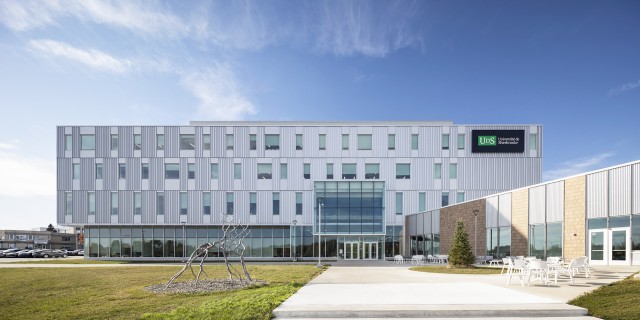
"The teams are working at the intersection of basic and clinical research, with a view to fast-tracking knowledge transfer from the laboratory to patients. The wealth of clinical data will also be utilized to allow patients to benefit as quickly as possible from scientific advances, and to generate new working hypotheses."
—Professor, Vice-Rector, Research and Graduate Studies, UdeS
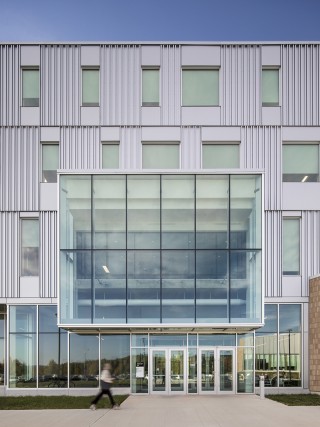
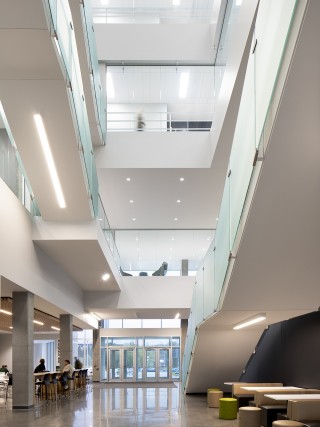
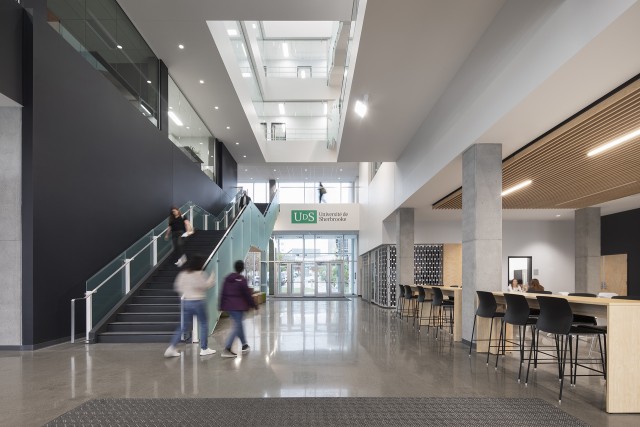
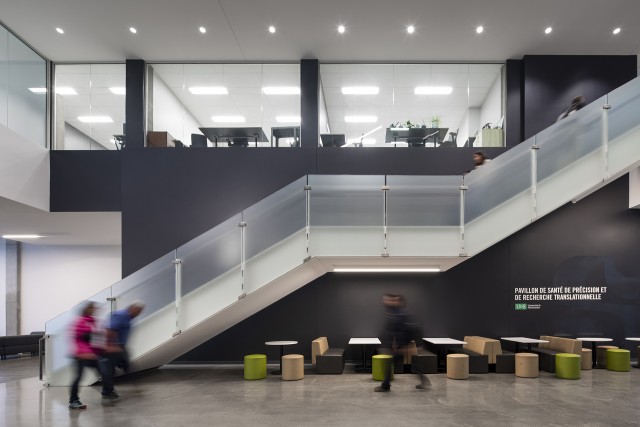
Strategically located in a sunny area at the heart of the Université de Sherbrooke’s Health Campus, the building provides a bright, stimulating environment for various scientific research teams to meet, exchange ideas, and share resources, knowledge, and discoveries.
On the second floor, walkways link the building to the Faculty of Medicine and Health Sciences (Pharmacology Institute of Sherbrooke) and the Gérald-La Salle teaching pavilion. On the main floor, the building is connected to the Carrefour du savoir (library).
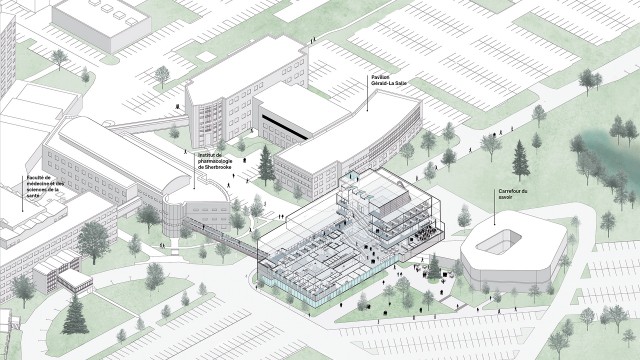
On the main floor, an atrium at the heart of the building opens onto the pavilion’s four levels, where architectural staircases link the floors to encourage users to live an active lifestyle. The atrium is surrounded by a living area, food services, a multi-purpose hall with retractable bleachers, technical services, and administrative offices.
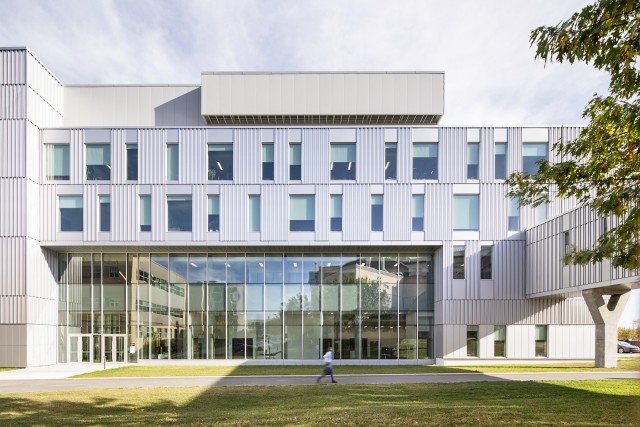
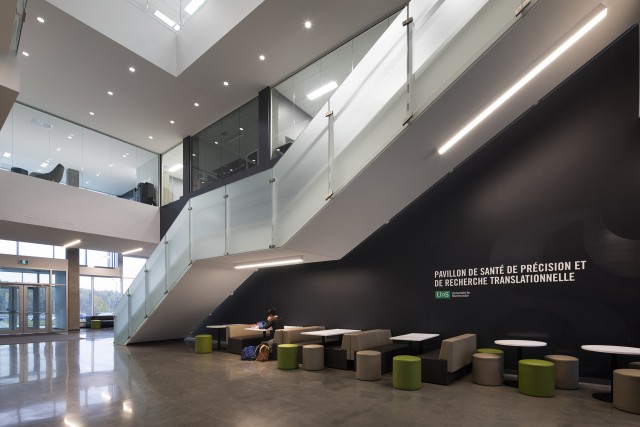
Three of the PSPRT’s four floors are devoted to research and geared toward specific themes. Research into digital health is conducted on the second floor, while the third and fourth floors house large laboratories where researchers work respectively on aging and neuroscience, and on infections and inflammation. Dry and wet labs are modular and have been stacked across floors to optimize the distribution of electromechanical services.
Collaborative spaces, meeting places, and active workstations have been set up on the upper floors to encourage exchanges between research teams and stimulate creativity.
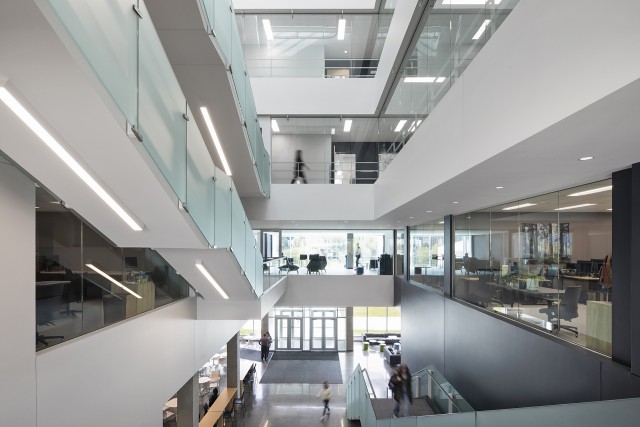

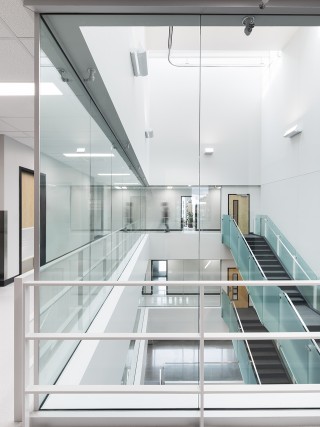
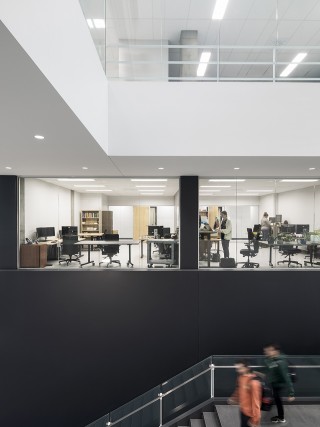
"Knowledge in medicine and the health sciences, as well as the provision of care, are evolving rapidly. We’re pleased to be able to offer our student and research communities unique, empowering environments that inspire achievement and foster innovation."
—Professor, Rector, UdeS
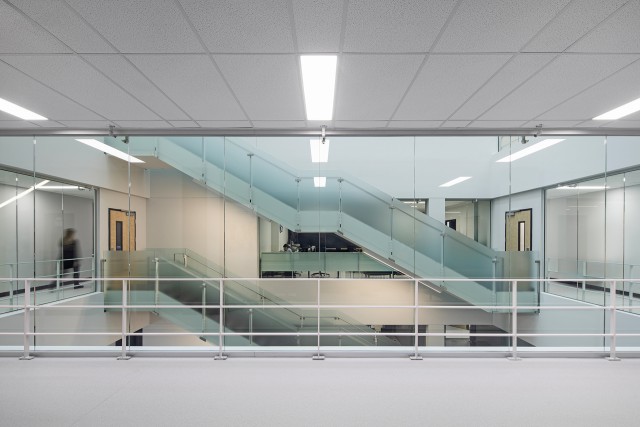
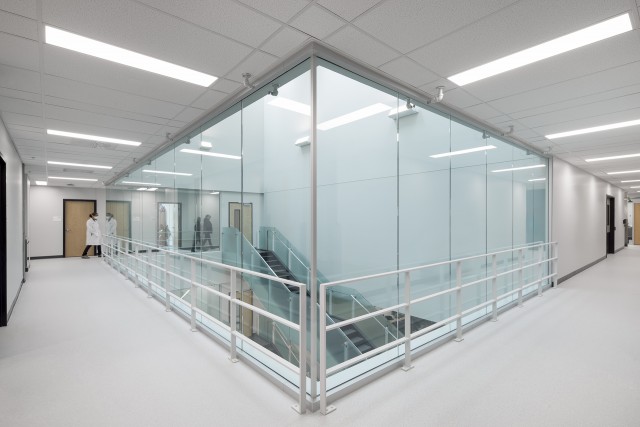
Particular attention was paid to sustainable development in the design of this project, in line with government guidelines and the Université de Sherbrooke’s sustainable development strategy. The implementation of high-performance energy systems such as geothermal wells and recuperative coolers respectively make it possible to minimize the building’s greenhouse gas (GHG) emissions and reuse the heat generated by equipment.
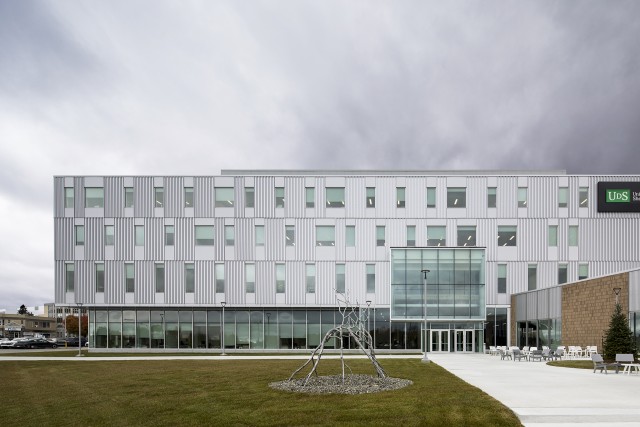
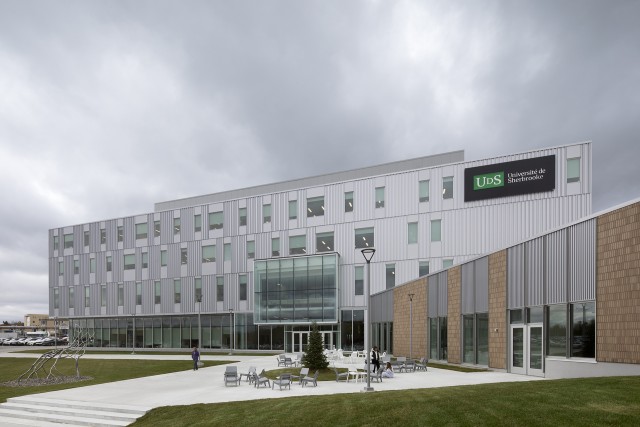
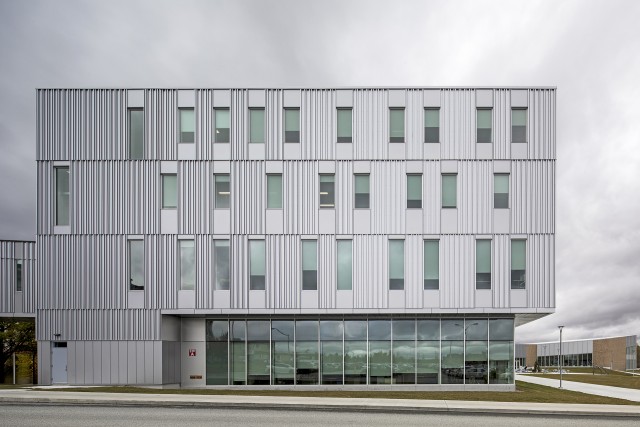
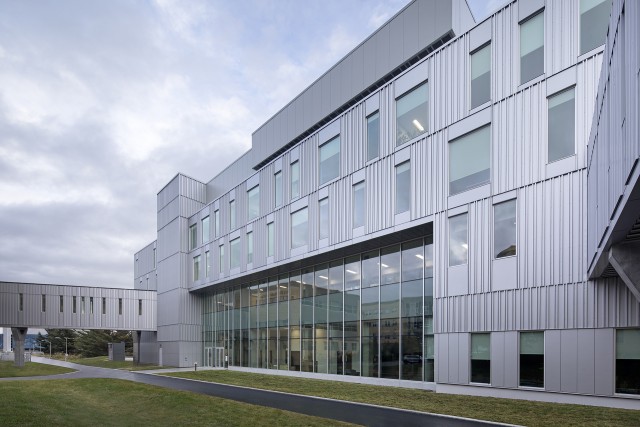
"The PSPRT will enable us to reach the best talents, both students and researchers. The scientific program will generate innovations that will support our health and social services systems by improving the quality of life of our community members and developing care adapted to their needs."
—Professor, Dean, Faculty of Medicine and Health Sciences (FMSS), UdeS
